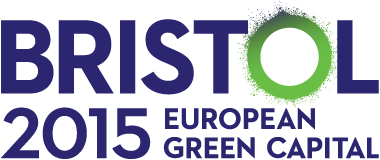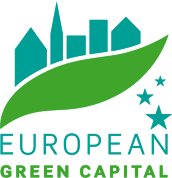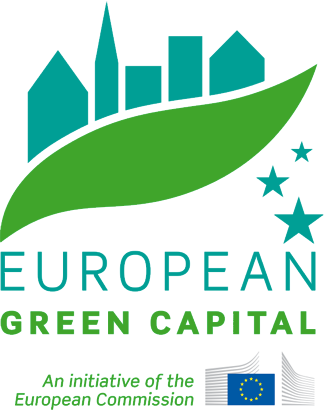Bristol’s Green Capital year lays foundations for future generations
Bristol’s year as European Green Capital is nearly over but thanks to hundreds of sustainable projects in communities, foundations have been laid to help future generations create a healthier and happier city.
2015 began with a pledge to show what’s possible when people come together to make Bristol a better place. Energy, food, nature, transport and resources were earmarked as five key areas for special attention and, to help, the largest environmental fund of its kind awarded nearly £2 million to 187 projects throughout the city, introducing conversations about sustainability.
Other wide-reaching projects include an education programme which has already encouraged over 14,000 primary pupils from 74 Bristol schools to take forward the Green Capital baton, long after the city hands over the prestigious title to Ljubljana in Slovenia on 9 February 2016.
In addition, over 10,000 people have engaged with 14 green art projects through the Neighbourhood Arts Programme; around 1,000 businesses got involved with Go Green, a scheme guiding them to a sustainable future; and students from the city’s universities are on track to complete 100,000 hours of volunteering for Green Capital.
The #Do15 campaign encouraged citizens to think about the small ecologically-friendly changes they can make. Over 17,000 people pledged to do something different by pushing the big green button (which rewarded them with applause) or visiting the #Do15 website. The button toured the city at events, businesses and schools through a partnership with the charity Young Bristol.
The campaign also attracted pledges and endorsement from a wide range of celebrities including chef and broadcaster Hugh Fearnley-Whittingstall, rock band Kaiser Chiefs, local football and rugby captains and Aardman’s Shaun the Sheep.
“We are now seen as a leader among environmental cities, with the potential and commitment to do so much more and encourage others to join us in the process. That achievement is thanks to our Green Capital Partnership and all of the Bristol communities who have embraced our journey so far and worked together with the City Council and Bristol 2015 to make bold steps to face the challenges ahead.”
Other Green Capital highlights included six major art projects which were designed to help people see sustainable issues in a new light. Funded by a special ‘Exceptional Award’ grant from Arts Council England worth £744,564, they included:
• Arcadia’s Metamorphosis in Queen Square – a mechanical spider made from 50 tonnes of recycled military hardware combined art, music, special effects and the world’s first recycled biofuel pyrotechnics system to create an unforgettable weekend of entertainment.
• The Bristol Whales in Millennium Square – the life-sized whale sculptures made from willow and depicted swimming through thousands of upcycled plastic bottles, challenged citizens to shun single use plastics.
• Sanctum by Chicago-based artist Theaster Gates – the installation at Temple Church was made using materials from across the city and breathed new life into the empty bombed out structure with 24 days of continuous live performance.
• Withdrawn by Luke Jerram – the artist known locally for the water slide in Park Street brought a flotilla of fishing boats to Leigh Woods to raise awareness of the impact humanity is having on our seas.
• Richard Long’s Time and Space exhibition – the Bristol-based artist brought his new solo exhibition to the city to highlight his personal physical connection with nature and use of local materials.
• Festival of the Future City – the largest ever debate about the future of cities brought together academics, city planners, artists, writers, filmmakers, architects, politicians, journalists, poets, community leaders, businesses, scientists and think tanks. A key aspect was how the arts can be involved, on a practical level, with shaping urban life.
Supporting and carrying forward these networks is the Bristol Green Capital Partnership, a Community Interest Company comprising over 850 member organisations, ranging from big businesses and the public sector to charities and community based organisations, all united by a pledge to make Bristol a ‘low carbon city with a high quality of life for all’.
In the first two months of 2016, the Partnership will be launching the Good Transport Plan, convening two significant sessions on sustainable energy, and continuing to develop its ground-breaking relationship with Crowdfunder UK under the ‘Better Bristol’ campaign.
Development Manager, Gary Topp, commented: “The Partnership of over 850 Bristol city region organisations is the largest of its kind in the world. It exists to initiate and amplify the many projects, individuals and organisations across the city that are helping to make Bristol more sustainable and put it at the forefront globally of approaches to city change.
“The Bristol Green Capital Partnership represents a new way of working by combining the work of many city players under one platform and this is now acknowledged as a vital approach to city development. It is only when a city combines the expertise of its world class academics with the motivation and creativity of its community organisations, and combines social enterprise with commercial models, that complex issues can be addressed.”





